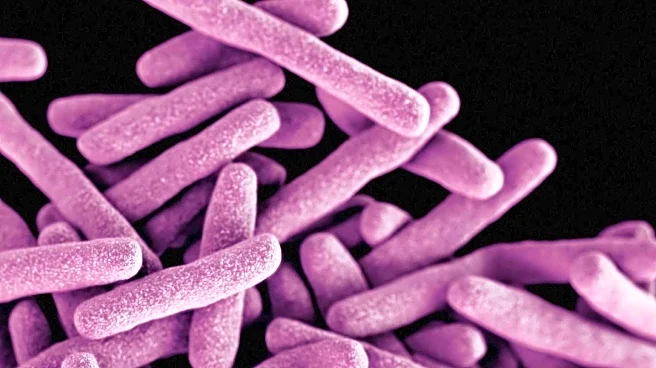What's Happening?
Recent research published in Nature Communications has uncovered significant links between gut bacteria in early childhood and the development of anxiety and depression symptoms later in life. Using advanced
brain imaging and machine learning, scientists have identified how the gut microbiome influences brain network connectivity in children as young as six years old. The study, part of the Growing Up in Singapore Towards Healthy Outcomes (GUSTO) project, analyzed stool samples and brain scans to explore the relationship between early-life gut microbiome composition and mental health outcomes. Findings suggest that specific microbial profiles are associated with changes in brain connectivity, which in turn correlate with internalizing symptoms such as anxiety and depression observed at 7.5 years of age.
Why It's Important?
This study highlights the crucial role of the microbiome-gut-brain axis in childhood development, offering new insights into the origins of mental health issues. Understanding these connections could lead to early interventions that mitigate the risk of developing chronic mental health conditions. The research underscores the importance of microbial diversity in early life, which appears to influence brain architecture and emotional regulation. These findings could pave the way for novel therapeutic strategies targeting gut microbiota to improve mental health outcomes in children, potentially reducing the prevalence of anxiety and depression in later life.
What's Next?
While the study provides promising insights, the authors caution that the findings are preliminary and based on a modest sample size. Further research is needed to replicate these results in larger and more diverse populations. Future studies may focus on identifying specific microbial patterns that could serve as markers for mental health risks, enabling targeted interventions. Additionally, exploring the causal mechanisms behind these associations could deepen our understanding of the microbiome's impact on brain development and mental health.
Beyond the Headlines
The implications of this research extend beyond immediate mental health outcomes, suggesting a broader impact on educational and social development. As internalizing symptoms can affect cognitive performance and social interactions, early identification and intervention could enhance overall childhood development. Moreover, this study contributes to the growing body of evidence supporting the gut-brain connection, potentially influencing public health policies and practices related to childhood nutrition and microbiome health.










